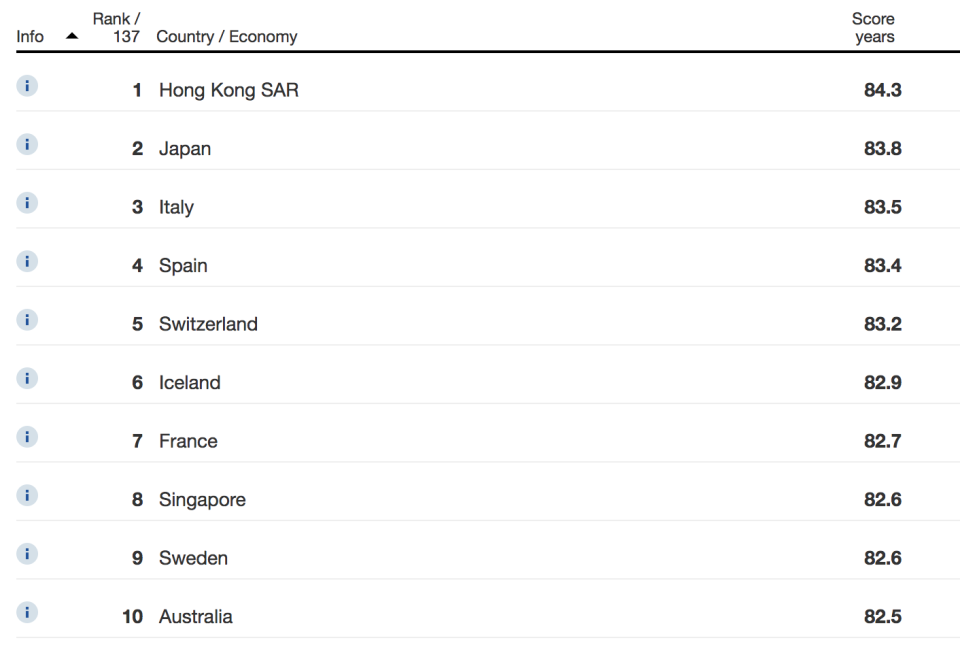If you're born in the US, expect to live five years less than if you were in Asia or Europe

The United States may be the most competitive country in the world but when it comes to life expectancy, it’s struggling in global rankings.
Every year WEF releases its benchmark Global Competitiveness Report that takes a look 98 indicators across 140 countries to determine the overall ranking. Each indicator uses a scale from 0 to 100, to signify how close an economy is to the ideal state or “frontier” of competitiveness. Those indicators are then organised into 12 pillars, such as health, skills, financial system, infrastructure, and institutions.
In addition, WEF this year used a new methodology to fully capture the new emerging dynamics of what fuels the global economy, which means including some other indicators that were not included before, such as diversity, workers rights, re-skilling, and press freedom.
Under WEF’s fourth pillar — health and primary education — the sub-index of “Life Expectancy” shows that the US only ranks 37th with an average life expectancy at birth of 78.7 years, which is part of a growing downward trend. This is 5.6 years less than Hong Kong which is in the top spot with 84.3 years.
The findings fall neatly in line with a recent report in the peer-reviewed medical journal The Lancet. It said that the US will fall far behind other high-income countries, reaching an average lifespan of just 79.8 years by 2040.
Christopher Murray, director of the University of Washington’s Institute for Health Metrics and Evaluation (IHME) which conducted the study, said in a statement: “Inequalities will continue to be large. In a substantial number of countries, too many people will continue earning relatively low incomes, remain poorly educated, and die prematurely. But nations could make faster progress by helping people tackle the major risks, especially smoking and poor diet.”
Asian and European countries dominated the top of the charts with Australia sneaking into the 10th spot. The UK came in 20th position with an average 81.6 years.

WEF identified that health is an issue that could see the US unseated as the most competitive country in the world.
“The United States faces numerous policy uncertainties moving forward, many of which are in the areas where it is relatively weakest,” it said. “Successfully meeting institutional challenges relating to both public and private institutions, improving the macroeconomic environment, and investing in human capital—particularly in the areas of health and primary education—will be crucial for the United States to maintain its position near the top of the competitiveness rankings.”

 Yahoo Finance
Yahoo Finance 
